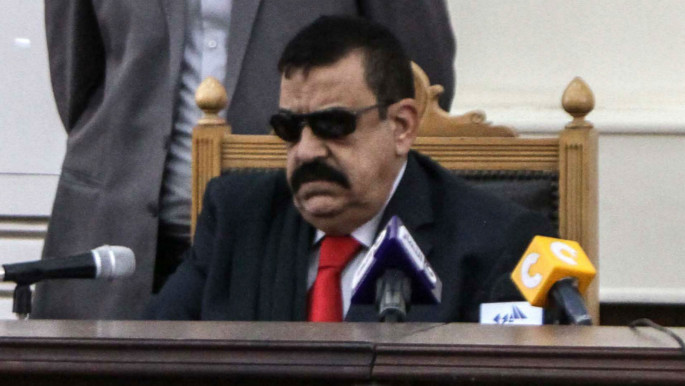Egyptian court postpones trial of three anti-coup protesters
Egyptian court postpones trial of three anti-coup protesters
A court in Egypt on Thursday postponed delayed the trial of three anti-government protesters who were arrested last year for 'blocking roads and illegally assembling'.
2 min read
Anti-government protesters in Nahia [Archive/Getty]
An Egyptian court postponed the trial of three anti-government activists being held on charges of assembling illegally, blocking roads and possessing weapons until December 28.
The Giza criminal court delayed the trial, which has been dubbed the "Nahia road blocking case" by local media, on Thursday after a public prosecution officer failed to carry out the court's request to summon eyewitnesses for questioning, says al-Araby al-Jadeed's Egypt correspondent.
Nahia is a town west of Cairo well-known for being a hotbed of anti-government protests and support for the now-banned Muslim Brotherhood.
The three defendants are being tried by notorious judge Mohammad Nagy Shehata, who has been condemned by human rights groups for sentencing hundreds of Islamists to death during speedy mass trials.
Abd al-Rahman Mohammad Salah, Amr al-Husseini and Mohammad Shehata have all been accused by the public prosecutor of "assembling to disturb the peace and carrying firearms and knifes to attack people" on October 28 last year.
The public prosecutor has also accused the men of attacking a group of government supporters, who tried to disperse them and holding an "illegal protest".
Egypt's draconian anti-protest law allows authorities broad powers to ban or disperse most public demonstrations on the basis of "serious information or evidence that there will be a threat to peace and security," without requiring any proof.
The Giza criminal court delayed the trial, which has been dubbed the "Nahia road blocking case" by local media, on Thursday after a public prosecution officer failed to carry out the court's request to summon eyewitnesses for questioning, says al-Araby al-Jadeed's Egypt correspondent.
Nahia is a town west of Cairo well-known for being a hotbed of anti-government protests and support for the now-banned Muslim Brotherhood.
 |
|
| "Executioner" Judge Nagy Shehata is overseeing the case [AAAJ] |
Abd al-Rahman Mohammad Salah, Amr al-Husseini and Mohammad Shehata have all been accused by the public prosecutor of "assembling to disturb the peace and carrying firearms and knifes to attack people" on October 28 last year.
The public prosecutor has also accused the men of attacking a group of government supporters, who tried to disperse them and holding an "illegal protest".
Egypt's draconian anti-protest law allows authorities broad powers to ban or disperse most public demonstrations on the basis of "serious information or evidence that there will be a threat to peace and security," without requiring any proof.



